'A prime minister's responsibility is the entire nation.'
'The nation looks to you for protection, for security...'
'Politics has become larger than the nation's interests.'
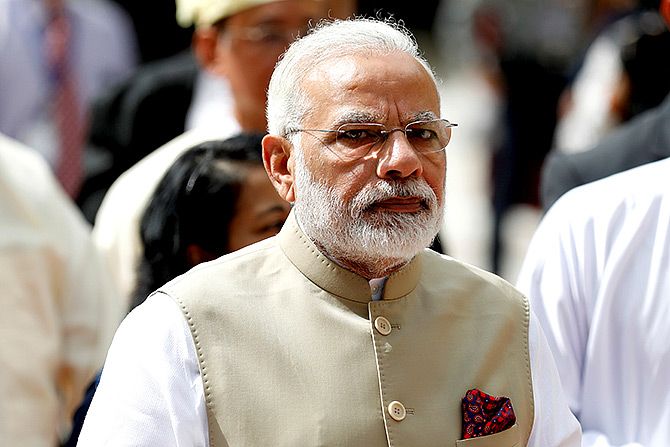
"Change," says Priya Dutt, who is contesting her fourth election on a Congress ticket, "is always good."
That, she says, is how she accepted her electoral loss in 2014 -- her first since she contested the 2005 by-poll necessitated by the death of her father Sunil Dutt and won the 2009 election -- to the BJP candidate, a first-timer, Poonam Mahajan (the late BJP leader Pramod Mahajan's daughter), and watched Narendra Damodardas Modi being sworn in as the country's prime minister.
The 52 year old, who is once again contesting from Mumbai North Central -- which goes to the polls on April 29 -- had been worried then, as she told Rediff.com in 2014.
"Today, nobody's talking about Bhajapa sarkar (BJP government). Everybody is talking about Modi sarkar. What does that tell you?," she asks. "Within the BJP too, they have sidelined the moderates."
"Today, when BJP candidates ask for votes, they say 'Modiji ko vote dijiye (Vote for Modi).' They are not even asking the votes for themselves. What does that tell you?" Priya Dutt tells Savera R Someshwar/Rediff.com in a forthright interview.
- Part 1 of the Priya Dutt Interview: 'Rahul Gandhi knows what India needs'
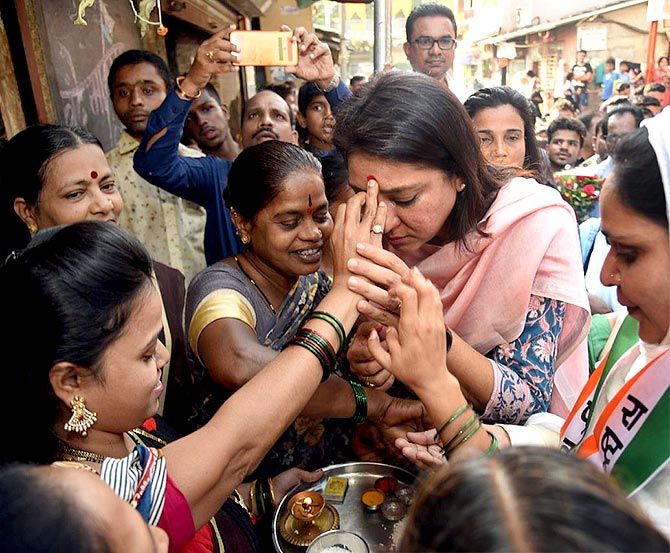
The Bharatiya Janata Party swept the 2014 election on a Modi wave. Many Congress leaders, including Dutt, were flung out of their constituencies by the one-man tsunami that engulfed the country.
Five years later, in fact, within a few months of Modi's reign, Dutt was clear she had been mistaken in expecting that this change could have been good.
In 2014, this is what she had to say about Modi.
"I find him very authoritarian and that's scary for India. He may not be that person -- I don't know him personally -- but that is what I perceive of him and what I feel comes out through the media.
"He's trying to be a larger than life kind of character, a superman who has come flying into India to save it."
Today, when asked who she thinks are the three worst people in Indian politics, there is no hesitation before she answers.
In an India that has become increasingly polarised, increasingly communalised and increasingly tolerant, one would have expected someone like Priya Dutt to raise her voice.
As a 21 year old, she had accompanied her father Sunil Dutt on a 78-day, 2,000 kilometre Mahashanti Padayatra dedicated to peace and harmony in Punjab, that began in Mumbai and ended in Amritsar.
He resigned in protest from his parliamentary seat after the riots engulfed Mumbai in 1992-1993. Maharashtra, at the time, was ruled by his own party, the Congress.
Priya Dutt says she has raised her voice, but says it is not in her nature to be "aggressive" which could, she admits, be a drawback.
She also says her father would have hated the brand of politics that holds sway over the country today.
Dutt has, in her political avatar, shied away from harnessing the star power of Bollywood.
Modi and the BJP, on the other hand, has effectively used celebrity power to effectively expand its reach and brand.
When the elections were announced, the prime minister began tagging celebrities, asking them to encourage people to vote.
As Joyojeet Pal, who has studied Modi's online strategy explained to Rediff.com, "Modi doesn't say '@deepikapadukone please vote for BJP', rather he requests her to ask people to bring out the vote. This, most people would agree, is a good cause, so it's tougher for the celebrity to say something against it."
Last year, the BJP pursued the Sampark for Samarthan programme, under which they planned to reach out to 1 lakh celebrities -- including many from the worlds of cinema and cricket, the twin heartbeats of India -- to ostensibly brief them about the achievements of the Modi programmes and seek their support.
It proved to be a brilliant PR exercise.
But Priya Dutt has a few acerbic questions.
Thanks to Karan Johar and Kangana Ranaut, nepotism is no longer an unknown word.
Its orbit includes the film industry, politics, the world of business and two of Nargis and Sunil Dutt's three children.
Has Priya Dutt benefited from it?
How does having a Bollywood star at a rally -- her brother Sanjay Dutt will campaign for her -- impact the vote?
Her answers may not be what you expected to hear.
In the last five years, there have been many changes.
She's reaching out to a constituency that she has not directly been in touch with for "two-and-a-half to three years".
The electoral war is being fought as much on social media as it is on the ground.
And though she has embraced social media, she's not quite sure if she has successfully harnessed its power.
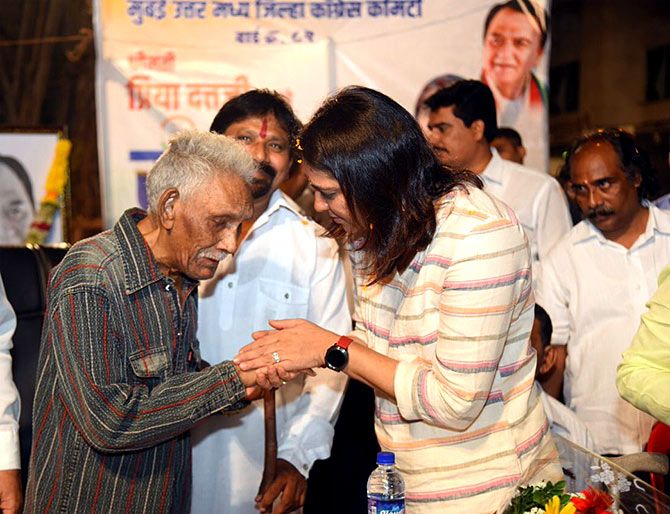
Her campaigning is on in full swing, but her strategy has changed. Instead of the large road shows, she's opted for smaller meetings, where she tries to spend time with her constituents.
She still believes in the traditional door-to-door style of campaigning though. "People must know who are voting, or not voting, for," says Dutt, who's considered to be quite accessible in Mumbai North Central, a constituency where the very rich rub shoulders with the very poor; where those living in large, airy, highrise homes tend to forget the stench rising from the gutters that abut tiny homes in dank, dark chawls, where one section of society enjoys the benefits of infrastructure and development while the other awakens at ungodly hours to store the water that trickles through for a precious 15 minutes.
The two, however, are linked by the ubiquitousness of spectrum and social media which, Dutt believes, may very well change the way the next elections -- to be held in 2024 -- are fought.
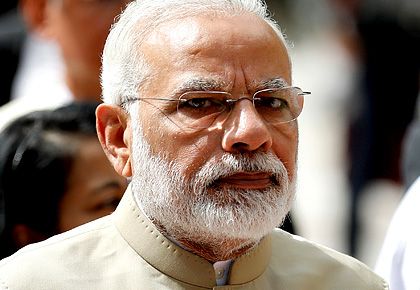
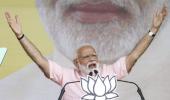








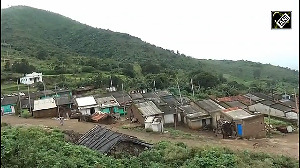
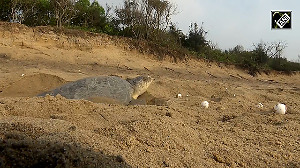
 © 2025
© 2025